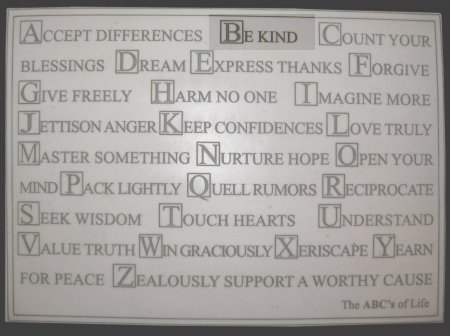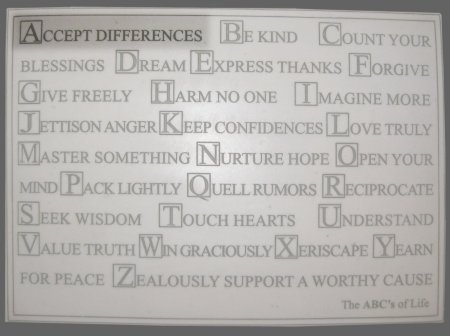While forgiving often seems like something that you do for others, it is, in reality, something you do for yourself. Forgiving benefits the person who receives forgiveness, and it benefits the … [Read more...]
The ABC’s of Life: Express Thanks
As I continue this post series inspired by The ABC's of Life wall hanging pictured above, I am again struck by both the simplicity of the concept and the apparent difficulty many of us have with … [Read more...]
The ABC’s of Life: Dream
As I continue this post series inspired by a plaque I purchased while visiting the Biltmore House this past Christmas, I keep getting challenged by both the plaque and the process of writing about … [Read more...]
The ABC’s of Life: Count Your Blessings
Bad stuff happens to everyone. We all face illness, the death of loved ones, financial crises, job setbacks, relationship challenges, and mechanical malfunctions. All of them are real, and all of … [Read more...]
The ABC’s of Life: Be Kind
What a simple concept, and it is so often violated. It does not seem that being kind should be difficult. Yet, I see examples of unkindness all around me. Parents yelling at their kids. Kids … [Read more...]
The ABC’s of Life: Accept Difference
During the week between Christmas and New Year's day, my wife and I went to the Biltmore Estate in Asheville, North Carolina. Near the end of the day, we stopped in one of the gift shops, and we found … [Read more...]






